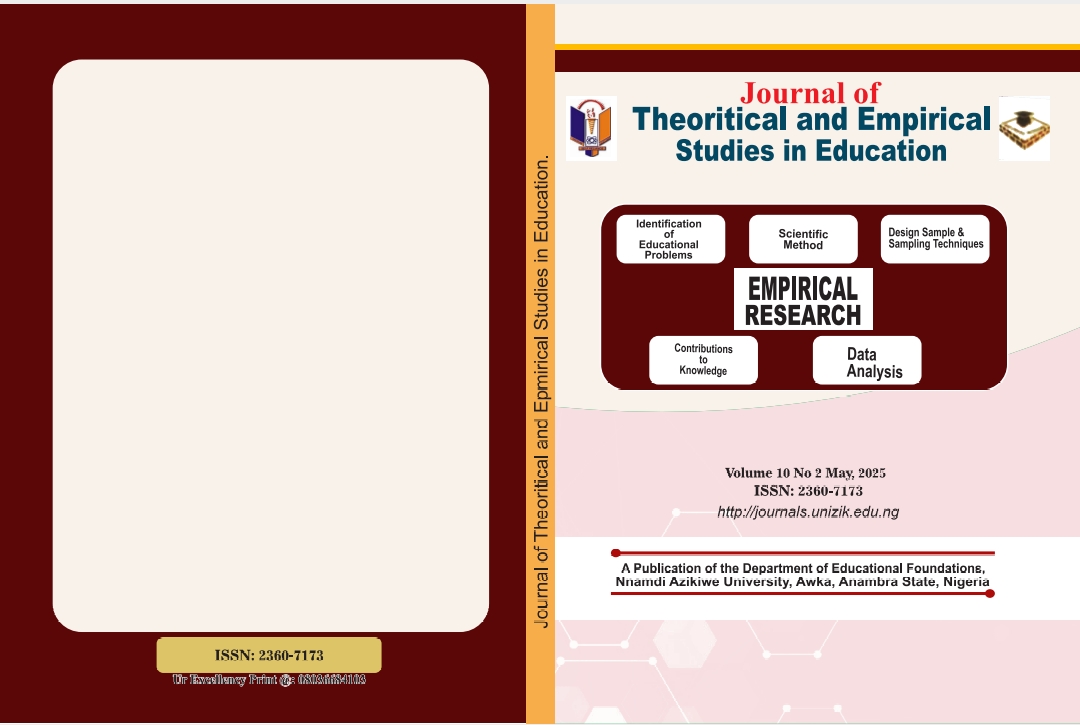PERCEIVED EFFECTS OF MOBILE GAMES AND AUGMENTED REALITY ON SECONDARY SCHOOL STUDENTS’ LEARNING OUTCOMES IN BASIC SCIENCE AND TECHNOLOGY IN OYO STATE, NIGERIA
Keywords:
Mobile games and augmented reality, Secondary school students’ learning outcomes, Basic Science and Technology, Teachers’ perceptions, GenderAbstract
It is a well-established fact that mobile games and augmented reality positively
impact students’ learning outcomes. However, there is dearth of literature on the
perceived effects of mobile games and augmented reality on secondary school
students’ learning outcomes in Basic Science and Technology in Oyo State,
Nigeria. Therefore, this study investigated teachers’ perceived effects of mobile
games and augmented reality on secondary school students’ learning outcomes in
Basic Science and Technology in Oyo State, Nigeria. Three research questions
and six hypotheses guided the study, adopted a mixed methods quantitative and
qualitative approaches in a concurrent triangulation design, Sampled by cluster
random sampling technique 300 secondary school teachers. Data was collected
using Perceived Effects of Mobile Game and Augmented Reality on Secondary
school Students Learning Outcomes Questionnaire (PEMgArSLQ, R=0.81) and
Interview (PEMgArSLI, IRR=0.74). Data was analyzed using frequency counts,
percentages, mean, standard deviation, thematic analysis, t-test and ANOVA. The
teachers have high perception of mobile games and augmented reality on
secondary school students’ learning outcomes in Basic Science and Technology
in Oyo state, Nigeria which contradicted the thematic analysis results that
majority of the teachers’ perception was very low. The perception was significant
(Mean=103.81, SD=7.11, df=273, t=102.05, p<.05). There is a significant
difference in perceived perception based on gender (t=-9.830, df=271, p<.05),
age (F(3,270)=19.91, p<.05), school types (t=-3.016, p<.05), qualifications
(F(3,270)=3.96, p<.05) and experience (F(2,271)=13.87, p<.05). Government should
refurbish the secondary schools with ICT infrastructural facilities and arrange
more Teachers Professional Development Programmes (TPDP) on ICT
utilization in science education.




